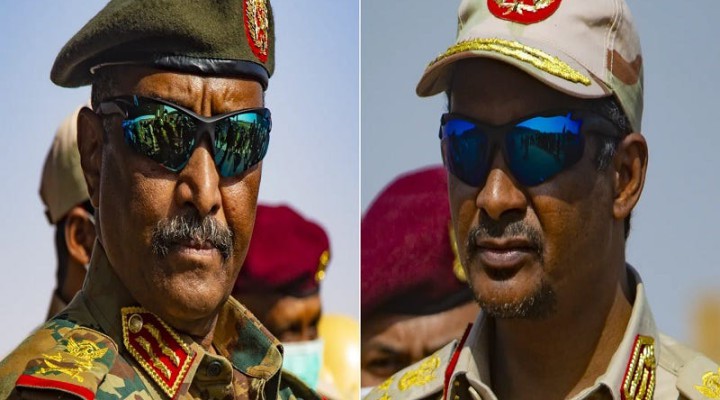Five Takeaways From The Newly Commenced Saudi-US Peace Process For Sudan

The US remains the most influential foreign actor in this conflict, which it was responsible for sparking but is now trying to stop since the military-strategic dynamics shifted against its interests.
The Sudanese Armed Forces (SAF) and the Rapid Support Forces (RSF) both dispatched representatives to Jeddah for talks on Saturday that Al Jazeera reported will only officially concern humanitarian ceasefires and not negotiations aimed at ending their “deep state” war. The day prior, Saudi Arabia and the US released a joint statement urging both parties to end the conflict as soon as possible throughout the course of this newly commenced peace process that those two just pioneered.
The first takeaway from this latest development is that the US has succeeded in neutralizing the principle of “African solutions to African problems” that’s supposed to be applied towards every crisis on the continent. It did so in joint partnership with Saudi Arabia, which is a key stakeholder in Sudan and with whom the US increasingly views with distrust after its surprise Beijing-mediated rapprochement with Iran in mid-March.
The second pertinent observation builds upon the prior one with respect to these two countries putting aside their differences in pursuit of advancing their shared goal of ending Sudan’s “deep state” war. They’re each pursuing different ends, however, with Riyadh wanting to reaffirm its self-assumed leadership of the Arab World while Washington to save its SAF partners in parallel with preventing rivals like Russia from playing a role in this conflict.
Third, despite previously declaring that they’ll continue fighting until their foe is completely defeated, both warring parties have nevertheless proven that there are caveats to their maximalist goals, particularly humanitarian ones. This is a godsend for those civilians caught in the crossfire, though there are credible reports that neither side has completely respected the several ceasefires thus far. Even so, it’s still a positive development on balance and obviously better than there not being any ceasefires.
The fourth point directly expands upon the third and concerns the unlikelihood that either warring party sincerely wanted to agree to these humanitarian ceasefires, hence why they reportedly continued fighting in spite of them, but were nevertheless heavily pressured by the US to at least partially comply. This insight speaks to that country’s role as the most influential foreign actor in this conflict, which was reaffirmed by the latest peace process that it just recently commenced with Saudi Arabia in Jeddah.
And fifth, the US is expected to wield Biden’s latest sanctions decree as a Damocles’ sword for further pressuring the warring parties to end their conflict that Washington itself was responsible for sparking per Russia’s assessment and the Mainstream Media’s subsequent admissions of this fact. This policy isn’t being promulgated in the selfless pursuit of peace, however, but to preserve US influence in Sudan after its SAF partners failed to decisively defeat the RSF and thus risk losing if the war drags on.
These takeaways from the newly commenced Saudi-US peace process for Sudan prove that Washington remains the most influential foreign actor in this conflict, which it was responsible for sparking but is now trying to stop since the military-strategic dynamics shifted against its interests. The attention that America is paying to this “deep state” war shows how important it regards the outcome as being, which explains its “mission creep” that could culminate in military intervention to save the SAF if need be.
https://korybko.substack.com/p/five-takeaways-from-the-newly-commenced
 TheAltWorld
TheAltWorld 
0 thoughts on “Five Takeaways From The Newly Commenced Saudi-US Peace Process For Sudan”